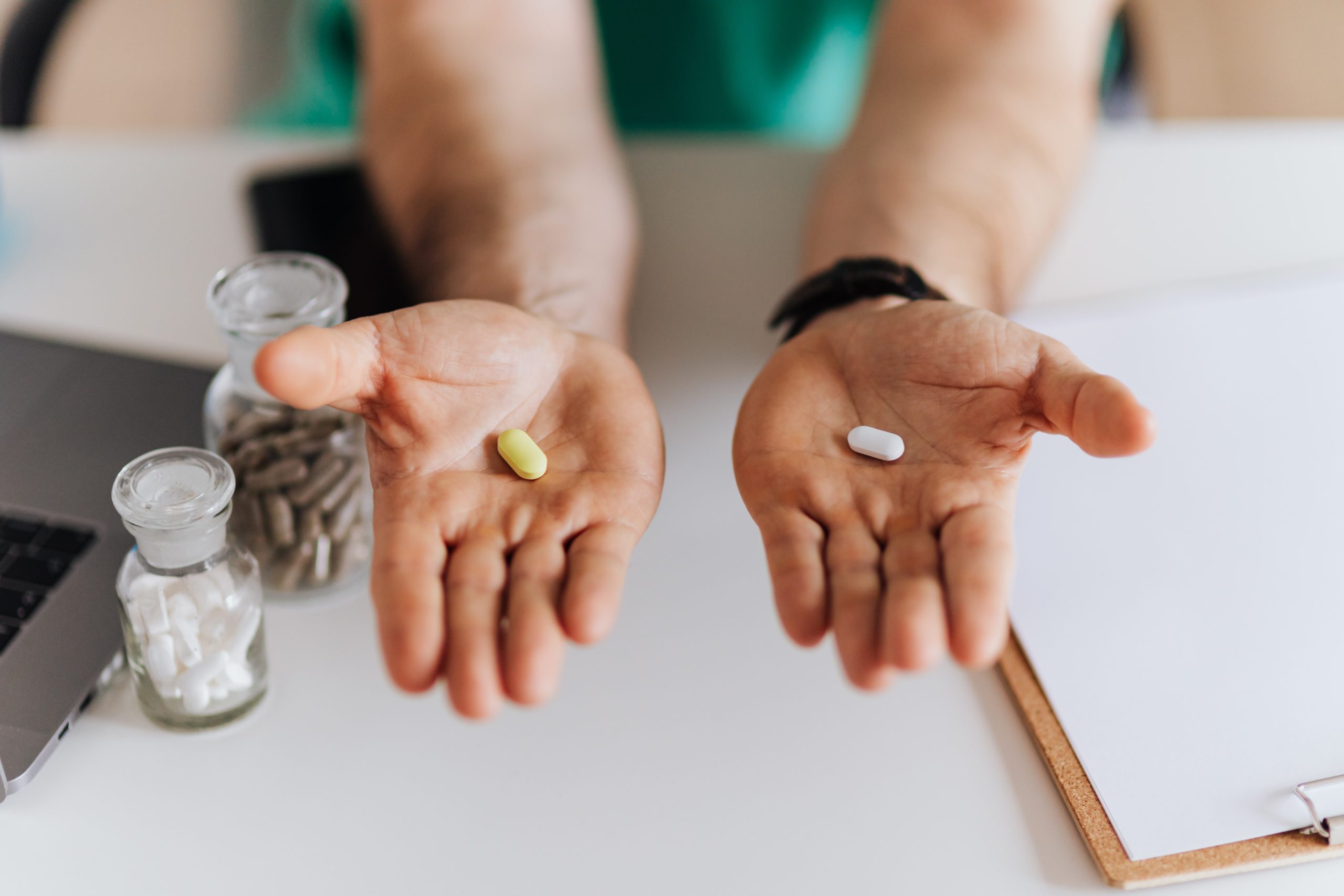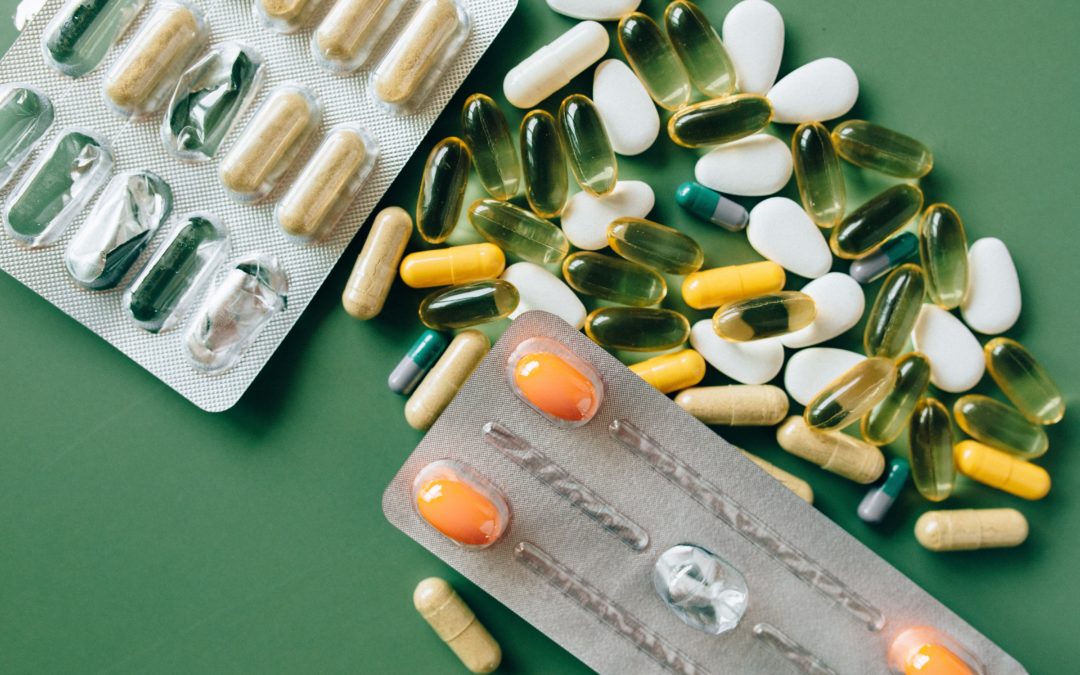
So you’ve fixed your diet, exercise regularly, and do yoga weekly. Kudos to you for jumpstarting a healthier lifestyle! But if you’re still looking for ways to protect yourself from COVID-19 and other viruses, consider taking supplements.
Should you take supplements, on top of eating a nutrient-dense and balanced-diet? Yes, you absolutely can!
Think of it as filling through the gaps of your daily recommended intake. And because we live very busy lives, factors such as stress and infection tend to deplete our nutrient stores. Taking supplements is going the extra mile to protect our bodies.
Below are the top supplements you can take to give your body an extra boost. Take note, these supplements are for ingesting daily, and not only when you start feeling sick.

Vitamin C
No other supplement is more popularly linked with the immune system than Vitamin C. It’s best known and most widely promoted to prevent or treat the common cold.
Though this has been long-debunked (Vitamin C does not prevent colds, but can help you get over it faster), vitamin C is still a powerful supplement for immunity.
Vitamin C is essential for the health of white blood cells, also known as leukocytes, that help fight infections. Rich in antioxidants, vitamin C helps protect the body from free radicals that can enter our bodies through things like tobacco smoke, or the sun’s radiation.
It also boosts absorption of other nutrients like iron, folate, vitamin D, and zinc.
We can stock up on Vitamin C through two ways: eating vitamin C-rich foods, such as citrus fruits and red peppers, and taking it as supplements.
Recommended dosage for adults: 500 milligrams twice daily for maximum absorption.
Vitamin D
Like vitamin C, vitamin D is an illness-fighting nutrient. Whereas vitamin C is known as the best defense against the common cold, vitamin D is known as the “sunshine vitamin” or “vitamin sun.”
When we get exposed to the sun, a vitamin is made from the cholesterol on our skin. Though it’s recommended to get 10-30 minutes of sunlight per day, too much sun exposure can lead to skin damage or skin cancer.
Vitamin D can also be ingested through foods rich in it, like fatty fish and cod liver, but it’s hard to get the recommended amount from these sources alone, so supplementing is highly advised.
Vitamin D is necessary for the immune system to function. It enhances the pathogen-fighting effects of white blood cells, decreasing inflammation, and promoting immune response.
Vitamin D is predominantly associated with its ability to protect the body from upper respiratory infections, leaving many to wonder if it can help protect from COVID-19.
While there are no studies to support this, and there’s currently no cure for COVID-19, studies have shown vitamin D can expedite healing, and stall inflammation in the respiratory system.
Recommended dosage for adults: 1,000 to 2,000 international units per day, taken with a meal.

Zinc
Think of zinc as the badass multi-tasking friend that you have. It ticks off several health benefits, so it’s a nutrient you should never bypass.
Among its many talents are fighting off infection, healing damaged tissue, preventing aging and cell regression, building proteins, and creation of DNA. Zinc specifically protects tissue barriers in the body and helps prevent foreign pathogens from entering.
It’s also the supplement to accompany life’s milestones. Because it helps cells grow and multiply, adequate amounts of zinc are needed during stages of rapid growth, such as pregnancy, childhood, and adolescence.
Recommended dosage for adults: Zinc is a trace mineral, so you only need it in small amounts: 11 mg a day for men, and 8 mg a day for women daily.
Elderberry
Elderberry is the dark purple fruit from the elderberry shrub. It’s rich in antioxidants called anthocyanins, from which it derives its many health benefits.
Anthocyanins are said to protect the body from free radicals, have antiviral properties that prevent or reduces the occurrence of infections, and helps protect the body from inflammation.
Elderberry is widely known for preventing the flu, with scientists believing that the berry stimulates the immune system’s chemical response, bringing relief from flu symptoms (quoted from healthline) But more studies need to be done.
Elderberry is sold as herbal supplements, but it can also be consumed in juice, syrup, lozenge, powder, or tea form.
Recommended dosage for adults: Supplements can be taken daily, three to four times a day(source: Medicinenet)If you’re taking elderberry syrup to fight fever, 1 tbsp. of elderberry syrup extract four times a day is recommended. Be careful not to overtake it, though. There are reports that it can lead to overproduction of cytokines, which could potentially damage healthy cells.

Curcumin
From ancient wonder to the modern superfood, turmeric has been circulating in the health magazines since 2016
Its claim to fame? Turmeric contains a nutrient called curcumin, which is brimming with anti-inflammatory and antioxidant properties.
Curcumin not only decreases inflammation in the body, it also helps relieve symptoms of arthritis, and block inflammatory cytokines that could cause autoimmune diseases.
Curcumin is also being studied for its effectiveness against diabetes, heart diseases, and Alzheimer’s.
So how can you supplement with curcumin? You need to take copious amounts of turmeric root for it to be effective, so you can definitely benefit from supplementing instead.
Recommended dosage for adults: 1,000 mg per day with food
The Bottom Line
If you want to get healthy, doctors will still recommend that you lessen stress, get adequate amount of sleep, eat a healthy diet, and exercise regularly. If you smoke, quit the habit as soon as you can.
So is it necessary to take supplements? It will definitely beneficial, and can at least give you a leg up if you’re too busy to prepare healthy meals every day for yourself.
Will it protect you for COVID-19? Unfortunately, there is not enough studies to support the use of any vitamin, herb, or any supplement to prevent COVID-19. The best defense still is social distancing, good hygiene practices, and getting vaccinated.
Still, there’s no harm in supplementing, which can help optimize or strengthen your immunity. Just remember to see your doctor first. Some supplements might contradict the effects of the current medications you are taking, and your doctor will know best the proper dosage for you.
Tags
References:
https://www.medicalnewstoday.com/articles/do-supplements-really-benefit-the-immune-system#Can-supplements-protect-against-COVID-19?https://health.clevelandclinic.org/eat-these-foods-to-boost-your-immune-system/https://www.healthline.com/nutrition/immune-boosting-supplementshttps://news.fiu.edu/2020/three-vitamins,-minerals-to-boost-your-immune-system-to-fight-covid-19



0 Comments